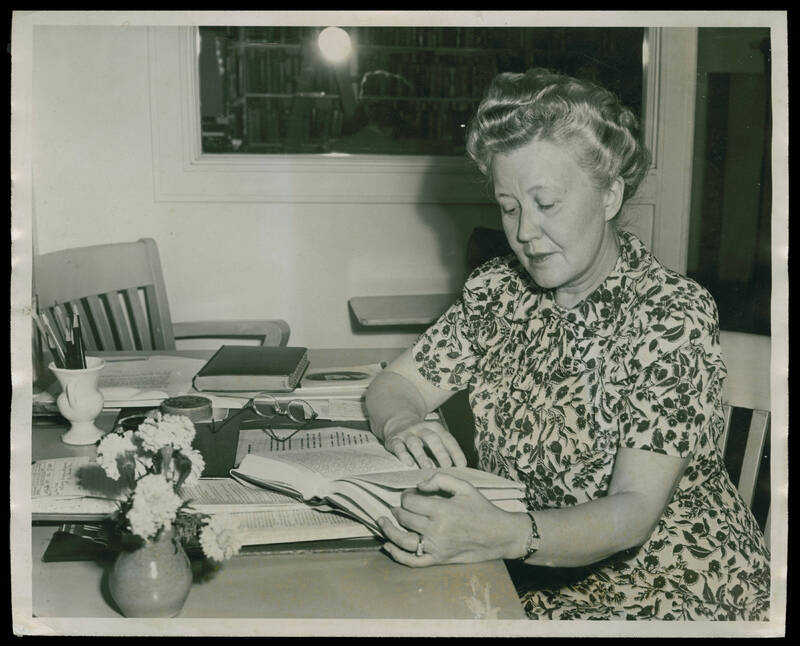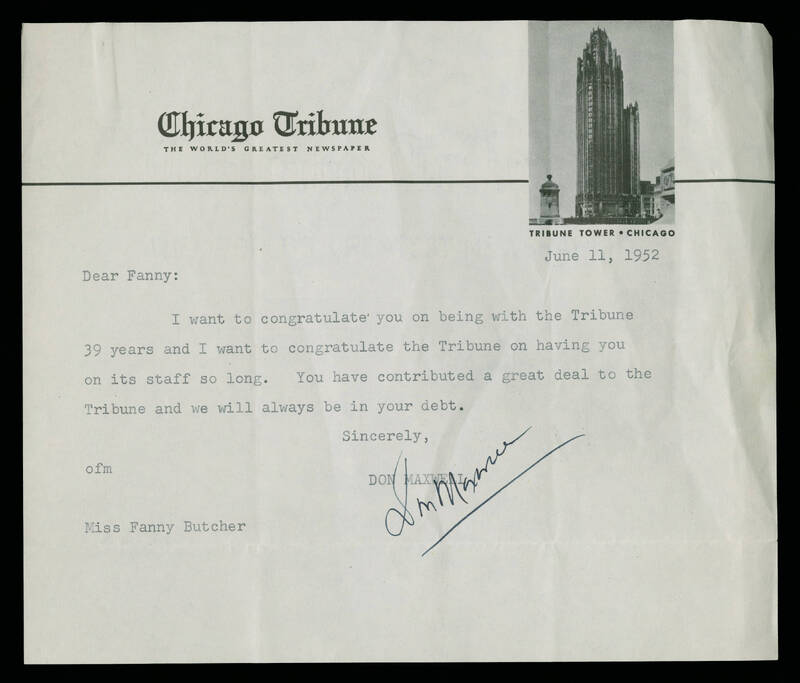Fanny Butcher: Impact and Legacy
Fanny Butcher was responsible for changing various conceptions about women’s work and women’s literature during her day. When she started at the Chicago Tribune, she was one of only a handful of female employees at the newspaper, meaning that she delivered one of the few female perspectives on the literary landscape of the time. Despite the sexism she would have faced, she gained a following and was respected for her work. She was a household name in Chicago, and her opinion on books was valued.
As a woman writer, she had an impact on her readership as well. Famously, Chicago Daily News editor Harry Hansen (quoted in Wellman 2013) wrote in 1923, “When Fanny Butcher recommends a book we get many inquiries for it from shop girls” [9]. Although Hansen might have intended to disparage and minimize Butcher’s influence, the quote actually serves to demonstrate Butcher’s importance to non-male readers; they trusted her recommendations. Butcher did not seem to believe that there was such a thing as “women’s books” or “men’s books.” Notably, Butcher was a devoted fan of Joseph Conrad, and frequently praised his work in her reviews. Literary critic H. L. Mencken (who was also a close friend of Butcher) did not think that women could even read or enjoy Conrad, holding that “Only the masculine mind could truly appreciate [the themes and tone] of Conrad’s writing” [9]. In her reviews, Butcher notes that Conrad’s work can certainly be challenging, but she makes no judgement on who can or cannot read the work; she told her readers what she made of a book, but left it up to them as to whether or not it would be to their own taste.
Butcher continued to promote reading until the end of her life. She retired from the Tribune in 1962; she had spent just shy of 50 years at the paper, spending nearly 40 as literary editor. After her retirement, she served as president of the Friends of the Chicago Public Library for a decade during the 1950s and 60s. Butcher and her husband, Richard Bokum (whom she married in 1935) hosted many of Butcher’s literary friends at their home over the years. She also wrote her memoir, Many Lives—One Love, during this time, which was published in 1972. In 1974, she was the recipient of the Society of Midland Authors Patron Saint Award. Butcher can also be found in the Illinois Institute of Technology’s alumni Hall of Fame. Towards the end of her life, she was honored by the Chicago Press Club’s Hall of Fame, and was inducted in 1981.
Butcher passed away on May 11th, 1987 at the age of 99. Posthumously in 2016, she was inducted in to the Chicago Literary Hall of Fame, showing that her legacy lived on. Fanny Butcher is remembered as the creator of the Tribune’s Tabloid Book Review section, wherein she popularized accessible, engaging writing about books, which promoted an interest in literature to a vast audience of readers.
[9] Jennifer Wellman, “Compulsory Conrad: Fanny Butcher and the Gender of Literary Criticism,” Studia Neophilologica 85, no. sup1 (June 1, 2013): 118-120, https://doi.org/10.1080/00393274.2012.751671.


